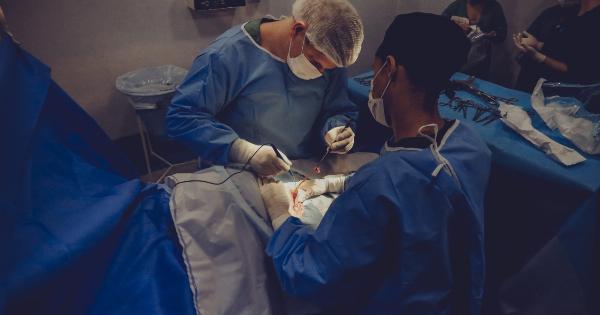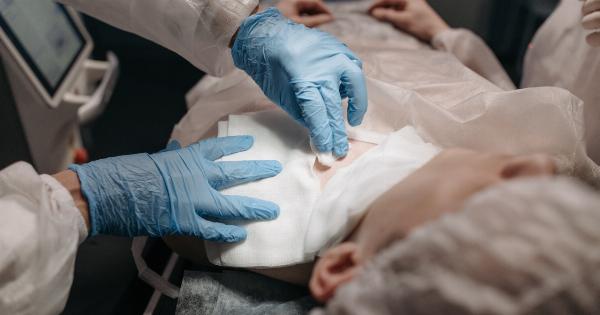Undergoing surgery can be a daunting experience, regardless of whether it’s a minor procedure or a major operation.
To ensure that you are fully prepared and informed before entering the operating room, it’s essential to have a thorough discussion with your doctor. Asking the right questions can help alleviate anxiety, improve understanding, and contribute to a successful surgical outcome. Here are ten crucial questions to ask your doctor when preparing for surgery:.
1. What is the Purpose of the Surgery?
Understanding the purpose of the surgery is vital for your peace of mind. Ask your doctor to explain why this surgical procedure is necessary, how it will benefit your health, and what the expected outcomes are.
This knowledge will help you feel more confident about your decision to proceed with the surgery.
2. Are There any Alternative Treatment Options?
In some cases, surgery may not be the only solution. Ask your doctor if there are any alternative treatment options available that you could consider. This could include medications, physical therapy, or lifestyle changes.
Understanding the alternatives will enable you to weigh the risks and benefits and make an informed decision.
3. What are the Potential Risks and Complications?
Every surgery carries certain risks and potential complications. These can vary depending on the type and complexity of the procedure.
Ask your doctor to explain the specific risks associated with your surgery and discuss how they might apply to your individual situation. Being aware of potential complications will allow you to make necessary preparations and take precautions for a smooth recovery.
4. What Preparations Do I Need to Make Before the Surgery?
Before your surgery, there may be certain preparations you need to make, such as fasting or avoiding certain medications.
Ask your doctor about any necessary pre-operative instructions, including dietary restrictions, medication adjustments, or lifestyle changes. Following these guidelines will help minimize potential complications during surgery.
5. What Should I Expect Before, During, and After the Surgery?
Having a clear understanding of what to expect throughout the surgical process is crucial for your mental and physical preparation. Ask your doctor about the pre-operative procedures, the details of the surgery itself, and the expected recovery process.
Knowing what lies ahead will help you mentally and practically prepare for each stage, reducing anxiety and ensuring a smoother experience.
6. How Long Will I Stay in the Hospital?
Knowing the expected length of your hospital stay is important for planning purposes. Depending on the type of surgery, your doctor can provide an estimate of how long you may need to stay in the hospital.
This information will enable you to arrange necessary post-operative support, such as assistance at home or adjustments to work commitments.
7. What Type of Anesthesia Will be Used?
Surgery often involves the use of anesthesia to ensure a pain-free experience. Ask your doctor about the type of anesthesia that will be administered during your surgery and any associated risks or side effects.
Understanding the anesthesia process will help you feel more comfortable and well-informed about this aspect of the procedure.
8. Will I Experience Pain After the Surgery?
Pain management is an essential aspect of post-operative care. Ask your doctor about the level of pain you can expect after the surgery and how it will be managed.
Inquire about the available pain relief options and the potential side effects of medication. This information will help you develop realistic expectations and plan for a comfortable recovery.
9. What Activities Should I Avoid During the Recovery Period?
Recovery from surgery often involves restrictions on certain activities to ensure proper healing. Ask your doctor for specific instructions on the activities you should avoid during the recovery period.
This may include lifting heavy objects, driving, or participating in rigorous exercise. Understanding these limitations will aid in preventing complications and supporting a smooth recovery.
10. What Signs or Symptoms Should I Watch For After Surgery?
Being aware of potential complications and knowing when to seek medical attention is crucial for a safe recovery. Ask your doctor about the specific signs or symptoms that you should watch for after surgery.
This may include excessive pain, bleeding, infection, or changes in wound appearance. Understanding what warrants medical attention will help you take prompt action if necessary.
Conclusion
Preparing for surgery involves more than just showing up on the scheduled day. Open and honest communication with your doctor is key to ensuring that you are fully prepared both mentally and physically.
Don’t hesitate to ask these ten important questions, as they will help you gain a comprehensive understanding of your upcoming surgical procedure and contribute to a smoother recovery.


























